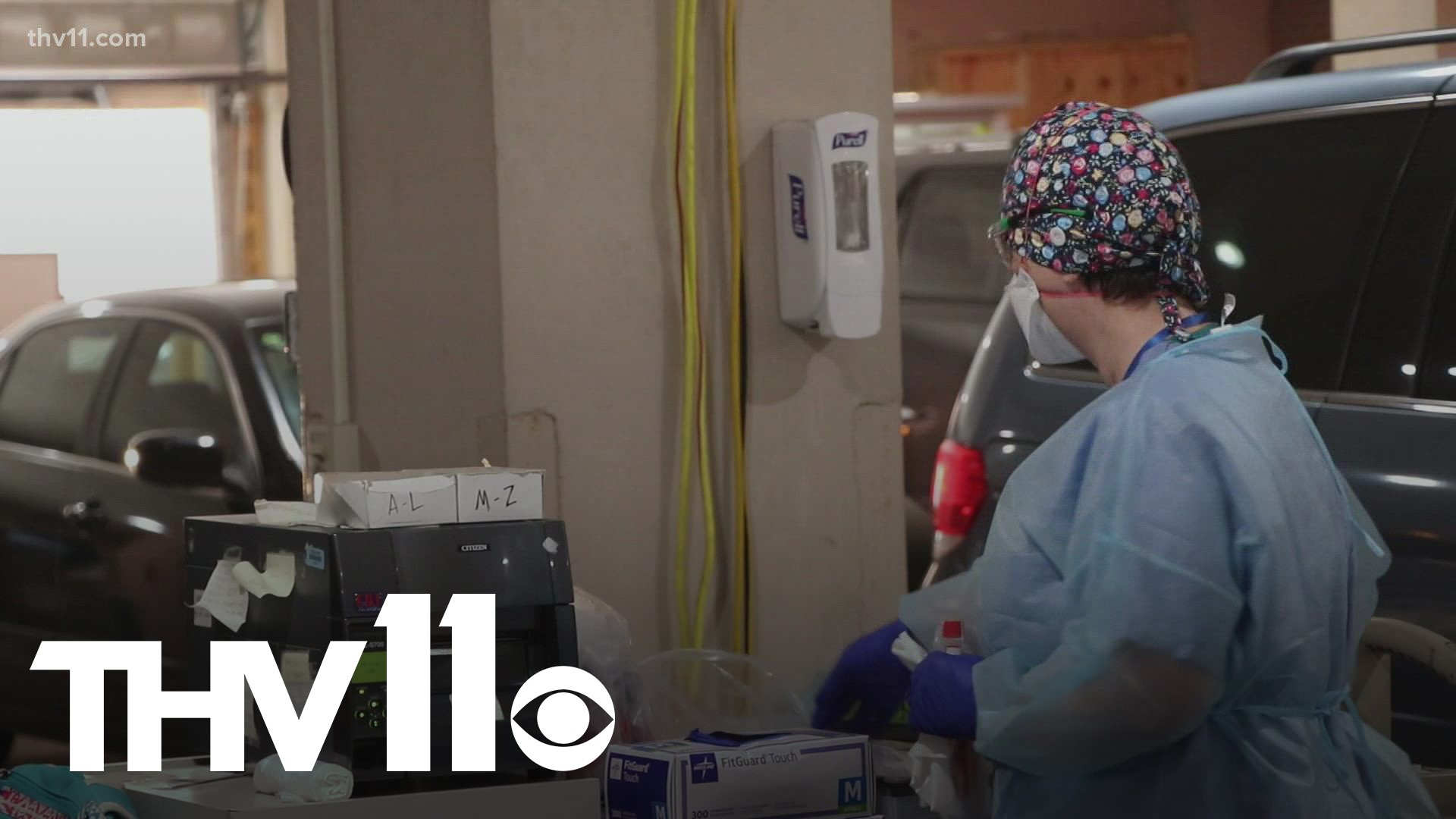LITTLE ROCK, Ark. — THV11 has received multiple questions concerning how COVID-19 data is reported and collected in Arkansas. One of the main questions involves distrust in the numbers, specifically because there's no clear understanding of how the numbers are reported.
We took the questions to the ones reporting the numbers: those at the Arkansas Department of Health (ADH).
ADH said all aspects of the COVID-19 data they report (ICU capacity, vaccinations, hospitalizations, etc) can be broken down into a couple of steps, but let's start with the beginning for all of those aspects – testing.
When someone takes a COVID-19 test, that's step one. The second step – the actual results.
If you were to test negative, it stops there. If you test positive, it's on to step three – reporting the numbers to ADH.
There are two main ways that those results make it to ADH – through electronic lab recording, which is what bigger hospitals like UAMS use. Smaller clinics also use this, but if they can't for some reason, they can also fax data in.
Once that happens, ADH can then report the numbers. From start to finish, this whole process can take anywhere from 1 to 3 days to report.
For ADH, reporting these numbers is more simple than ever.
"We've gotten pretty good after 18 months of going through this pandemic of really expediting and making our processes more efficient," Mike Cima, a state epidemiologist at ADH, said.
For something that might seem so simple, ADH said they've got a team working constantly to make sure Arkansans statewide know what's happening when it comes to the pandemic.
"We have put in countless hours, every day," Austin Porter, the Chief Science Officer for ADH, said. "Literally, even on holidays, to make sure that the people of Arkansas and the stakeholders have this information."
When it comes to those concerns over legitimacy of the data, Porter and Cima said there's no reason for small clinics to mislead.
"There's no benefit to us or to anybody else in over or under reporting the numbers," Dr. Steppe Mette, CEO of UAMS, said.
Porter said while the questions over legitimacy are easily debunked, he understands why people may feel that way – there are a lot of numbers reported from all over the state each day.
But they've got the experience to make sure the data is accurate and correct, which he said we should keep in mind, .
"Well trained experts, epidemiologists, data experts who are working around the clock to make sure that this process is as smooth as possible and to make sure that our data quality is certainly up to par," Porter said.

